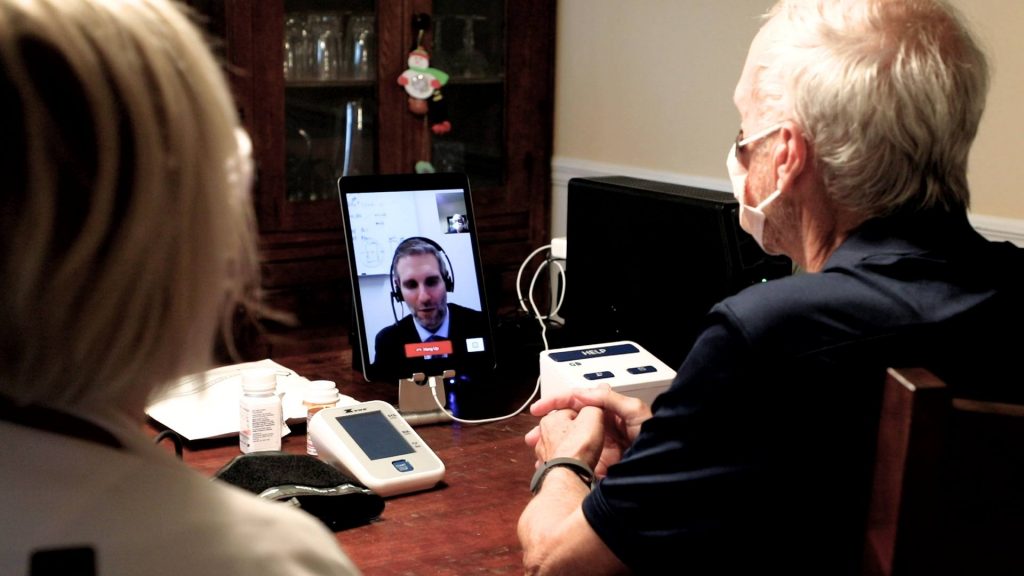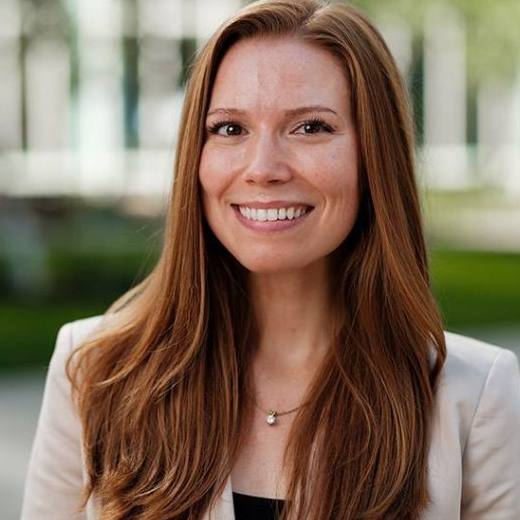-
Patients thankful for hospital-level care at home; bipartisan legislation would extend care after public health emergency

As the advanced care at home model grows around the country, patients are expressing appreciation for hospital-level care in the comfort of their own surroundings.
For Patty Young of Phoenix, severe breathing problems from valley fever, a fungal infection, sent her to the Emergency Department at Mayo Clinic in Arizona. Young stayed overnight in the hospital, but when she learned she was eligible for Mayo Clinic Advanced Care at Home, she opted to continue her care at home.
"It is a great alternative to being in the hospital if you don't have to be," Young says of the program that provides services in the home such as skilled nursing, medications and infusions, as well as laboratory, imaging, behavioral health and rehabilitation under 24/7 direction of Mayo Clinic physicians. "There's no place like home. The level of care, and the support I got from the providers and the command center, was flawless."
Ninety-two health systems and 202 hospitals in 34 states are approved for the acute hospital care at home waivers, which have only been in effect during the COVID-19 public health emergency, according to the Advanced Care at Home Coalition.
Bipartisan legislation has been proposed in Congress to extend the waivers for two years beyond the public health emergency.
"It’s gratifying to hear patients express appreciation for the seamless hospital-level care they get at home," says Michael Maniaci, M.D., medical director for Mayo Clinic Advanced Care at Home. "By collaborating with our partners in the Advanced Care at Home Coalition, we are hopeful that this program becomes a permanent care model."
Watch: Dr. Maniaci and Patty Young discuss Mayo Clinic Advanced Care at Home.
In July 2020, Mayo Clinic Advanced Care at Home began at Mayo Clinic in Florida and Mayo Clinic Health System in Eau Claire, Wisconsin. In September 2021, the program expanded to Mayo Clinic in Arizona, serving patients in Phoenix.
The program, which was launched by Mayo Clinic Platform and is operated by Mayo Clinic's Center for Digital Health, provides a secure and seamless experience at home. The program combines technology and clinical expertise to ensure that the needs of the patient come first.
When care staff are not in the home, patients can connect to them via phone or tablet. Paramedics are also available to respond in case of an emergency.
Mayo Clinic has treated more than 1,700 patients in this virtual care model. So far, findings indicate that acute-level care at home improved outcomes and increased patient satisfaction while lowering readmission rates.
The combination of patient demand for consumer-centered care models, innovations in technology, regulatory flexibility and the need for flexible capacity within the health care system is the impetus for this new care offering.
Robert Heintz of Chippewa Falls, Wisconsin, was happy to learn he could complete recovery at home for his hip revision surgery at Mayo Clinic Health System in Eau Claire. "From the time I left the hospital, there were no worries, no drops in the system. In about an hour, I was home and set up with all the equipment and pill dispensary."
Heintz says he felt well taken care of during his time in the program. The first two days were the acute phase of care. That's when his care team visited his home daily. The latter part of his care was the restorative phase. That's when he received multiple visits per week to check the wound, draw blood and perform physical therapy. He also received check-ins twice daily by video.
"I felt safe at home," Heintz says. "I could immediately talk to somebody 24 hours a day on video by iPad or by phone. After we had tornadoes in the area one night, one of the nurses at the command center in Florida called to make sure we were OK."
Young also says her care team made sure she felt safe. "After every call, everyone who I talked to said: 'Patty, call us immediately if you need us. We're a phone call away. We're a video call away. We will get someone there ASAP,'" Young recalls.
Medically Home, a Boston-based technology-enabled services company, is Mayo Clinic’s implementation partner for the program. The company offers an integrated technology platform and network of services that allow Mayo Clinic physicians to care for patients at home.







